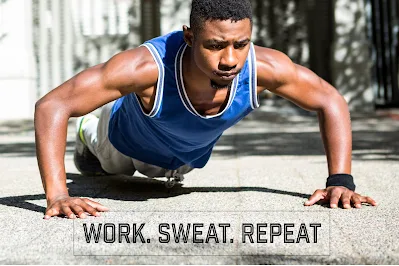It's a common misconception in the fitness community that bodybuilding and running are incompatible. Nevertheless, a thorough examination indicates that these two fields may complement one another to advance improved physical fitness, stronger muscles, and overall wellness. Let's examine how bodybuilding and running may work in tandem for optimal results when appropriately included into your training routine.
Recognizing the Relationship Between Running and Bodybuilding
In the fitness scene, bodybuilders have long had the paradoxical dread that jogging may cause them to lose muscle. Some claim that running promotes both muscle building and fat reduction, while others claim the opposite. Running is monotonous and repetitive, particularly when done on a treadmill, yet there is an undeniable connection between running and bodybuilding.The trick is to include both disciplines into your training regimen to improve cardiovascular health and muscular growth without losing either. While low-protein diets and muscle loss are potential side effects of high-volume endurance running, running has many positive effects when done properly. The secret is to stay in a strong mental and physical condition. Cardio, which is often seen as a necessary evil, is essential to enhance gains even though weightlifting is sometimes the most pleasurable aspect of training.
Running's Contribution to Muscle Growth
If long-distance running is not properly controlled, it might result in muscle loss. But such rigorous jogging is unnecessary if you're not preparing for a marathon or other long-distance event. Maintaining muscle growth and optimizing the advantages of running requires adhering to a high-protein, high-carb diet when including running into your exercise regimen1.
Your body produces more growth hormones after engaging in high-intensity exercise, which increases the amount of muscle in your upper and lower bodies. Cardiovascular exercise, especially high-interval cardio, may help you lose body fat and show off your muscles.2. You won't use up all of your hard-earned muscle on longer runs if you take the proper supplements. Short runs and interval training may be excellent alternatives to weightlifting.
Running to Get Better Results
Running is the finest approach to increase endurance, which will help you perform better and longer in the gym. Running is similar to other types of exercise. Just by increasing stamina, improved lung capacity and a more effective heart may enhance your weightlifting gains.Muscle development also depends on recovery, and running may improve blood flow to tired muscles3, which helps with recovery, particularly after extended runs and strength training. Additionally, running puts more strain on the circulatory system, which forces your heart to pump blood more forcefully to the parts that need it most.
Running's Effect on Sleep Quality
In our hectic lives, sleep is often neglected. But depriving our bodies of sleep may prevent our muscles from growing. The body restores muscle tissue injured after exercise while you sleep5. Muscle healing is improved by sleep-induced protein synthesis. Exercises such as running and high-intensity training have been shown to enhance sleep quality6, giving one more energy for the training session the following day.Running's Advantages for the Leg Muscle Groups
Running may work the muscular areas that bodybuilders often forget about, even if leg day is still crucial. Running at a consistent speed in between weightlifting sessions helps build muscle and stop it from deteriorating. When combined with a vigorous recovery program, the extra pressure on your legs may improve the strength and definition of your leg muscles.jogging for psychological well-being
Stress management is aided by the "feel good" endorphins released while running7. Running's improved blood flow may help elevate mood and lessen depressive and anxious feelings8. Along with improving mental toughness and confidence, running may help you sleep better, perform better in sports, and have more possibilities to build muscle.In summary
Running may improve your fitness routine even if it may appear like a difficult workout to begin, particularly for bodybuilders. Exercises with high intensity, like sprinting, may improve cardiovascular and provide much-needed energy for the gym. Running may enhance mental health, improve blood circulation, and encourage sleep. Your improvements and athletic performance will be evident when you mix weightlifting, cardio, and a healthy food and supplement routine.
Post your ideas in the comments section below. Remember to follow us on social media for more fitness guidance and recommendations.
Citations
Bio of the Author: The Author is a fitness fanatic who has experience rowing. They now concentrate on imparting to others their knowledge of strength training and the fitness industry.Notes
Z. Kazior and colleagues (2016). "Strength Training Improves the Effect of Endurance Exercise on Muscle Fiber Size and Akt and mTOR Protein Expression." Source: PLoS ONE, 11(2), e0149082.Freund, J., Heydari, M., and Boutcher, S.H. (2012). "High-Intensity Intermittent Exercise's Effect on Overweight Young Males' Body Composition." Source: Journal of Obesity, 2012, 480467
"Oxidative stress, inflammation, and recovery of muscle function after damaging exercise: effect of 6-week mixed antioxidant supplementation," Bailey, D.M., et al. (2010). 109(6), 1117-1128, European Journal of Applied Physiology. source ↩
J.D. Cantwell (1985). "Aspects of cardiovascular running." Sports Medicine Clinics, 4(3), 627–636. source ↩
M. Dattilo and colleagues (2011). "Sleep and muscle recovery: a novel and exciting hypothesis with an endocrinological and molecular basis" 220-222 in Medical Hypotheses, 77(2). source ↩
R. Dermack (2015). "A Study on the Effects of Long-Distance Running on Human Health" University of Stirling MRes Thesis. source ↩
Smith, R., Eifert, G.H., and Harte, J.L. (1995). "The effects of running and meditation on mood, cortisol, beta-endorphin, and corticotropin-releasing hormone in plasma." 40(3) of Biological Psychology, 251-265. source ↩
R. Dermack (2015). "A Study on the Effects of Long-Distance Running on Human Health" University of Stirling MRes Thesis. source ↩


